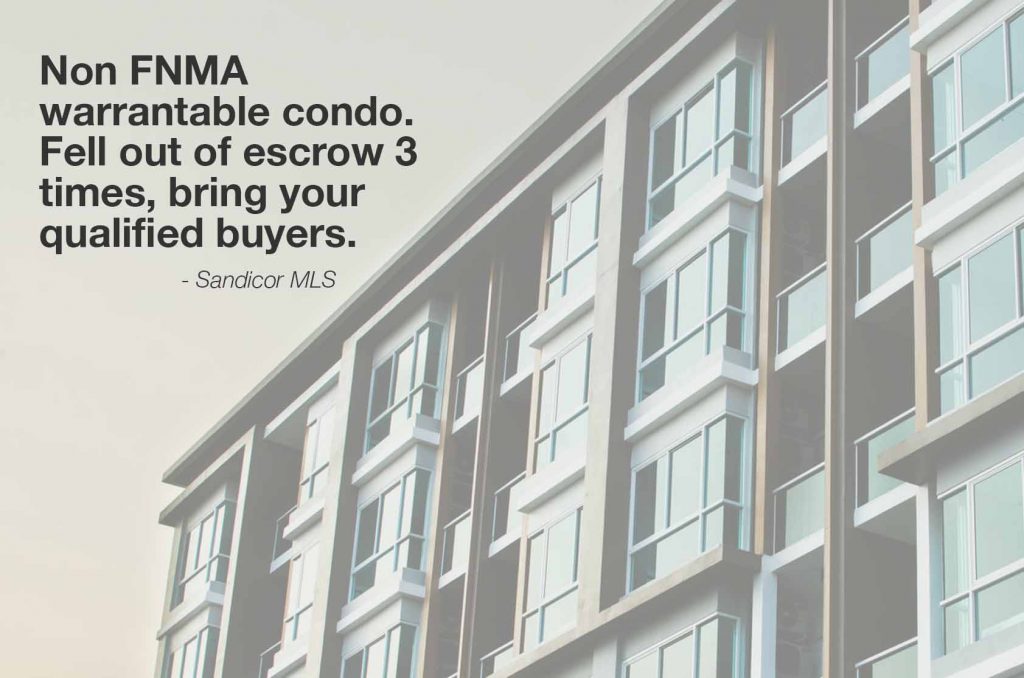One of the first questions to ask when purchasing or refinancing a condominium is whether the building or complex in question is warrantable. When a condo is non-warrantable, it can severely limit your financing options.
As a rule of thumb, almost all condo developments in California regardless of size may be impacted by some form of litigation or occupancy challenges during its lifetime.
Oftentimes the issue is merely temporary, such as a minor repairs to a common area, or the number of guest parking spaces allocated per resident . And once the matter has been resolved, typical financing programs usually become available once again.
In other cases however, the issue can be significant enough that the condo complex is considered “non-warrantable” by Fannie Mae and Freddie Mac. When this occurs, it has a direct and material impact on a borrower’s financing options. A complex that is designated as non-warrantable means neither Fannie nor Freddie will lend on it, prompting many real estate agents to clearly point this out in their listings:
“Active litigation in the complex. Please talk with your lender to confirm financing.”
- Pending Litigation
- Low owner-occupancy
- High HOA default ratio
- More than 10% owned by one entity
Fortunately, purchase and refinance mortgages are still available for condos that are considered to be non-warrantable. Below are some general guidelines and restrictions. Scenarios that fall outside of these parameters may be evaluated on a case-by-case basis.
Non-Warrantable Condo Guidelines
| OCCUPANCY | LTV | FICO | DTI |
| OO/2nd Home | 90%/75% | 660 Minimum | 50% |
| NOO | 75% | 700 Minimum | 50% |
- Up to 90% Loan-to-Value (LTV) for Owner-Occupied for Conforming loan limits
- Up to 85% Loan-to-Value (LTV) for Owner-Occupied for High Balance Conforming loan limits
Restrictions
- $970,800 Max Loan Amount for OO and 2nd home in qualified counties
- Project must be larger than 10 units (case-by-case exceptions)
- No short-term rentals. If there is a front desk check-in, the project will be ineligible
- The builder or developer may not own more than 10% of project
- 2 years tax returns
- Ask about delayed financing
- Unit must have minimum of 400 square feet. Must have reasonable comps nearby
- No more than 20% occupying space can be commercial use i.e. retail, etc
- If project is in a flood zone, HOA must have sufficient flood insurance
- Affordable Housing not allowed (must be cleared off title before COE)

